Welcome to my blog!
Every morning, I begin with a cup of coffee and 15 minutes of free thinking. I write down everything that comes to mind, from new ideas to thoughts that emerged overnight. This is where I develop and refine my new research. You'll find some repetition and ideas still in progress. Some might seem unusual or unclear at first, but that's part of the journey! I'm excited to share how my ideas form and evolve.
Logic, Impartiality, and the Human Mind: Navigating Biases and Reflexes
This post explores the concept of impartiality in logic and human thought, examining our inherent biases and how we can strive for a balanced approach to decision-making.
Can we ever truly achieve impartiality? Is it possible for logic to be completely neutral? These questions provoke profound reflection on the nature of our thinking processes. To become impartial, one must grow up free from biases, prejudices, and partisanship. This means not only refraining from or correcting sources of impartiality but being fundamentally impartial at the core. Given our human nature, this seems an improbable goal.
Biases and prejudices are embedded in our psychology, influencing our daily thoughts, interactions, and even how we form relationships and communities. In "Logic in the Wild," I discuss the concept of mental reflexes, drawing an analogy to physical reflexes like the flinch response. Boxers, for example, can learn to reduce but never fully eliminate this reflex. Similarly, our mental reflexes are deeply ingrained.
Psychologists Daniel Kahneman and Amos Tversky developed a theory around our psychological systems, labeling them as System 1 and System 2. System 1 is responsible for fast, unfiltered thinking, aiding in quick decision-making. System 2, on the other hand, is slower, geared towards problem-solving and deeper thought. Understanding and balancing these two systems is crucial, whether in situations requiring rapid decisions (like playing tennis) or those demanding careful consideration (such as deciding to propose to a partner).
The key isn't to suppress System 1 entirely; in fact, sometimes it's quite the opposite. For instance, quick thinking is essential when dodging an obstacle while cycling. We should embrace mental reflexes but not be enslaved by them. However, as I discuss in the book, even System 2 is fallible. Thinking slowly doesn't necessarily equate to thinking truthfully or coherently. Hence, I advocate for logic as a 'slower' system of thinking, System 3, one that not only circumvents mental reflexes but also addresses illogical patterns inherent in System 2.
Judges, perhaps, exemplify individuals who effectively utilize what could be termed Systems 2 and 3. They strive not to eliminate their biases and System 1 thinking but to ensure their decisions are justified independently of these influences. They are capable of ruling against their mental reflexes and instincts in such a manner that a third party could understand their decision-making process without any insight into the judge's personal biases. The goal, therefore, is not to eradicate biases but to act in ways that are informed by them only when necessary or appropriate.
Regarding neutrality, I propose a similar approach. Instead of striving for a logical mode of inquiry completely detached from content, logical praxis requires us to guard coherence in a way that is neutral with respect to content. It's essential to recognize, however, that logic itself is not entirely neutral. Logic is built upon fundamental assumptions, manifesting as rules of thought or laws about truth, that are intrinsic to its evaluative standards. These assumptions, akin to biases and mental reflexes, are elements we can't completely eliminate but can learn to navigate. Just as we acknowledge and work with our biases and reflexes, we must do the same with these logical underpinnings. This recognition doesn't undermine logic; rather, it enhances our understanding and application of it. Therefore, neutrality in logic isn't an absolutely inherent quality. Logic provides the means to guard coherence, aiming to achieve the appropriate level of neutrality in our space of inquiry.
What do you reckon?
Neutrality Against Equality: A Dialectical Dilemma
How does the neutrality of logic fail to produce equality in dialectical enquiry?
In yesterday's post, I raised a question: does the neutrality or even impartiality of a dialectical space of enquiry necessarily lead to equality? This is a question worth delving deeper into. Let's consider this: How can a neutral and impartial dialectical practice possibly not treat its participants equally? Or, more specifically, how can such a practice fail to offer equal access to enquiry despite its neutrality and impartiality?
Initially, I treated neutrality and impartiality together to contrast them with the concept of equality, noting their distinct roles in dialectical spaces. It's crucial to distinguish between these terms to avoid potential misinterpretation. Impartiality primarily concerns the behavior and psychology of the interlocutors — their capacity to identify and mitigate their own biases and prejudices in judgment. It speaks more to the dynamics between individuals rather than to the inherent qualities of the enquiry space itself. Neutrality, in contrast, can be inherent to the space of enquiry itself, serving as a characteristic that emphasizes logical structure over content. This distinction underscores that while impartiality is about people and their interactions, neutrality is about the very nature of the enquiry space. Recognizing the importance of this distinction, my focus will be primarily on exploring the concept of neutrality and its implications.
The critical question then becomes: How can a neutral dialectical practice fail to provide equal access to enquiry? The type of neutrality in question here is that offered by logic, which involves abstracting from the content of beliefs or theories and concentrating on structure. As I argue in "Logic in the Wild," maintaining coherence neutrally means seeking good logical patterns in reasoning, regardless of content. Examples abound where arguments are logical, irrespective of whether their components are true or false. In theory, as long as the enquiry is predominantly logical, any content is permissible. This includes everything from ancient optics, which visualized beams emanating from the eyes to perceive the world, to alien abduction narratives, all of which can be as logically coherent as the most established modern scientific theories. How then does this not foster equality?
There are two key ways this occurs:
1. Insights from critical theory (encompassing feminism, queer theory, race theory, and post-colonial theory) suggest that societal biases are so pervasive and systematic that they lead practitioners to believe they are reasoning without assumptions, when in fact they are enforcing deep-rooted doxastic commitments in their dialectical enquiry.
2. Logic itself harbors inherent assumptions in the rules and laws it upholds, potentially creating a form of epistemic injustice by disallowing views that challenge these assumptions. A notable example from recent decades is the emergence of paraconsistent logics, which accommodate inconsistent theories. Orthodox twentieth-century logic equates inconsistency with triviality — an ultimate absurdity. However, scholars exploring indigenous philosophies have recognized that these worldviews often necessitate a tolerance for some inconsistency due to the conceptual spaces in which they operate. If a dialectical space of enquiry does not accommodate inconsistency due to its logical standards, despite claiming neutrality, it risks excluding alternative conceptual frameworks under the guise of triviality. This exclusion inevitably leads to inequality.
This issue presents a profound challenge. The rise of paraconsistent logics, which permit inconsistency, starkly contrasts with the orthodox view of twentieth-century logic where inconsistency was synonymous with triviality. This shift is significant, especially for scholars interpreting indigenous philosophies. These philosophies often require an acceptance of certain inconsistencies, which traditional logical frameworks might dismiss as trivial. If our dialectical spaces, governed by these orthodox logical standards, reject inconsistency, they inadvertently marginalize these alternative conceptual frameworks, perpetuating inequality.
Such a scenario illustrates a deep and ongoing problem in the field of logical enquiry: the potential for epistemic injustice rooted in the very foundations of logic. This is a dilemma that will continue to engage and challenge my thoughts for some time to come.
Neutrality and Impartiality in Logic: A Quest for Equality in Dialectical Spaces
Do the principles of neutrality and impartiality in logical discourse foster equality in the realm of dialectical inquiry?
Today, I aim to discuss the concepts of neutrality, impartiality, and equality. Neutrality and impartiality share a closer relationship than they do with equality. In the realm of logic, my inquiry centers on whether these two principles engender equality, particularly within a dialectical space of enquiry. Curious about what constitutes a dialectical space of enquiry? Discover more in my book, "Logic in the Wild."
My focus here is a conceptual analysis centered on logic. Neutrality pertains to refraining from taking sides and maintaining a distance from the content of arguments. Within a dialectical context, where various perspectives undergo scrutiny, logic seeks neutrality. This neutrality is not about the truth of claims but rather the coherence of different beliefs or theories. It concentrates on the structure of thought, disregarding the content or truth of the arguments. Consider, for instance, a debate on intelligent design versus the multi-verse theory. Logic remains neutral between the existence of God or the multi-verse. It seeks to discern which theory better accounts for the facts, not which is true. The question of existence is undoubtedly significant and intriguing; however, it falls outside the purview of logic, particularly since proving the existence of God or a multi-verse is exceptionally challenging.
Impartiality, on the other hand, is more pragmatic. It involves fairness and unbiased judgment or decision-making. Logic aids in this regard not by prescribing actions or judgments, but by fostering coherence in thought processes. Impartiality endeavors to avoid presumptions about content, not only concerning the truth of the content but also any value judgments, such as those on a good-bad spectrum. If the content of a decision or judgment involves individuals, impartiality aims for equitable treatment. Thus, neutrality is more theoretical, while impartiality is more practical.
Now, let's consider equality. Here, we shift our focus from the application of logic in a neutral or impartial manner to the subjects of inquiry and whether they are treated equally. The concept of equality is indeed nebulous. What does it mean to treat God and the multi-verse equally? Is one being a scientific hypothesis a factor of superiority? How do we equate theological and scientific hypotheses? These questions are challenging to answer, particularly given the partial attitudes of both theists and atheists.
I'm not here to resolve this debate. Rather, my question is whether neutrality and impartiality in logical interactions within a community, particularly in the dialectical space of enquiry, lead to equality. Does the theoretical neutrality of logic, coupled with its purportedly impartial application, ensure equality in outcomes? This is a question that I will continue to ponder in the times ahead.
Harmony and Coherence: A Logical Perspective
Can harmony be considered as a guardian of coherence?
In "Logic in the Wild," I advocate for the notion that logic serves as the guardian of coherence. This role entails analyzing reasoning structures, patterns of inference, and the interconnectedness of beliefs and theories. To those familiar with logical terminology, coherence relates to validity as cogency does to soundness. Importantly, coherence does not equate to truth. It's possible for scientific or theological theories to be coherent without necessarily uncovering truth. History offers ample examples, from ancient theories of optics and astronomy to modern debates on the existence of God.
Despite its significance, coherence remains an elusive concept, taking on different meanings in various contexts. A thought-provoking question arises: How far can we extend this concept? To explore this, consider the concept of harmony, traditionally associated with music and defined as a pleasing combination of sounds. Yet, its roots extend deep into European scientific thought, influencing astronomical, geometrical, and moral theories long before the development of intricate musical harmonies.
In Ancient Greece, harmony meant not only melodious sounds but also the arrangement of celestial bodies and the balance of the soul. Music provided a sensory gateway to harmony, inspiring deeper intellectual pursuits. This search for balance encompassed the entire universe, individual souls, and everyday life. The notion of the "harmony of the spheres" is a pivotal concept in this historical narrative, depicting the universe as playing a harmonious tune through the movement of celestial bodies. Johannes Kepler, profoundly influenced by this idea, used complex geometries to formulate laws of motion still relevant in classical mechanics. Newton's third law of motion, known as the harmonic law, directly stems from this line of thought.
In a surprising turn of events, while developing a new geometrical approach to astronomy, Kepler inadvertently laid the foundations for what we now know as modern harmony. This leads to a compelling question: Can harmony be seen as an extension or embodiment of the concept of coherence? Is the pursuit of a unified structure, linking the movements of stars and the human soul, essentially a quest in safeguarding coherence?
Decoding Biological Narratives: Beyond the Surface of Evolutionary Logic
This post challenges the conventional understanding of evolutionary success, exploring the logical fallacies often embedded in patriarchal frameworks of biological interpretation.
Warning: In this post, I'm deliberately overlooking biological accuracy to focus on a logical argument. I'm not engaging in rigorous research to ascertain factual correctness. This is an exploratory exercise in articulating an idea, not a quest for scientific precision. I may revise the example or conduct thorough research later, but for now, the emphasis is on logical reasoning, not biological detail.
Yesterday, I observed a social media discussion about why female ducks have "vaginal maze tracks." According to popular belief, female ducks possess a complex, corkscrew-like reproductive system, turning mating into a complicated process. Similar claims have been made about pigs, though I vaguely recall them. While I'm no expert, and neither were the participants in the discussion, it raises an intriguing question: why do females in some species have sexual organs that complicate the reproductive process for males?
One suggested answer is that these structures "filter out" weaker males. Those incapable of navigating the complexity fail to reproduce, losing out in the evolutionary race. Another related theory suggests that it allows females to select which male's semen to accept for reproduction, as if they possess a primitive evolutionary instinct for choosing the most fit.
Admittedly, these explanations are factually flawed, but they illustrate a crucial logical point. People often interpret biological phenomena through a patriarchal lens, where the "fittest" males, by virtue of their physical prowess, are deemed best for evolutionary success. This is a classic case of equivocation, a logical fallacy where a term is used with two different meanings in the same argument. In this context, it's the confusion between physical fitness and evolutionary fitness.
This mistake mirrors the assertion that modern medicine weakens the human race by enabling individuals with diseases—those who might have perished without medical intervention—to continue their genetic line, counter to "natural" selection. But why label this a patriarchal viewpoint? Because this framework of evolutionary explanation is predicated on the notion of an evolutionary race, where the "fittest" is often synonymous with the strongest or most attractive male, chosen by females to pass on superior genes.
However, this perspective typically overlooks the female's role beyond being an object of attraction for strong males. For instance, in discussions about ducks, the focus was on the male's ability to navigate the reproductive challenge, portraying the female as a passive selector based on primitive instincts. Rarely do such discussions delve into the benefits these traits offer the female individual, revealing a one-sided narrative that oversimplifies complex biological realities.
Logic and Empathy: Navigating Social Landscapes
This post explores the intersection of logic and empathy in understanding others, highlighting the limitations of empathy in our socially fragmented world and the role of logic as a 'guardian of coherence'.
While acknowledging the speculative nature of these ideas, I find the perspective of viewing logic through the lens of social and psychological evolution quite inspiring. It helps frame its influence and function within our communities. This week, as I delve into the notion that logic is intrinsically linked to human activity, my journey is one of exploration rather than justification. My goal isn't to establish or defend theories about the origins of logic but to challenge myself to view logic from a fresh perspective. Trained primarily by mathematicians in formal logical methods, I'm now venturing to consider logic from an entirely different viewpoint.
Today, I revisit a useful comparison when contemplating logic's value within the community: its contrast with empathy. We are complex creatures, possessing brains capable of imagination, reasoning, and foresight, coupled with minds that experience a rich tapestry of emotions. It's crucial to not only understand our own feelings, which is a complex task in itself, but also to comprehend the emotions of others. Before engaging in activities like courting, negotiating, or collaborating, it's beneficial to grasp how others feel about us and their general emotional state. Sorting through one's own emotions is challenging enough; attempting to understand the feelings of others is even more so. This challenge intensifies with lesser familiarity and grows exponentially across cultural, spatial, or temporal divides.
Empathy demands that we not only understand but also deeply resonate with another person's perspective. It's the act of stepping into their shoes and experiencing their viewpoint. This requirement, I believe, is immensely challenging, especially in the age of social media. Our social circles now span hundreds, often including distant or unknown individuals. Continual exposure to the avatars of these distant connections leaves us struggling to empathize. In an ideal world, we would transcend social media's barriers and recognize the shared humanity behind these avatars – people who, like us, navigate daily life with its myriad routines and challenges. Yet, despite these commonalities, we find ourselves deeply divided along lines of morality, sexual and gender identity, belief systems, and political affiliations. In this fragmented social landscape, expecting empathy to serve as a bridge seems futile.
But here's where logic steps in. As I discuss in "Logic in the Wild," logic, in its role as the guardian of coherence, offers a way to understand and appreciate the beliefs of others. It allows us to find coherence in their thoughts without needing to fully immerse ourselves in their experiences. Logic provides a framework to navigate the complexities of human thought and interactions, especially in a world where empathy often falls short.
he Evolutionary Journey of Logic
Tracing the evolution of logic from its ancient origins to its role in evolutionary psychology, this post examines how logic has been integral in shaping human communities and societal development.
Let's get wild, and dive into an exploration of logic as a distinctly human affair. Yesterday, I mentioned that humans created logic, which is a bit of an oversimplification. Let's start there. In a certain sense, thinkers like Aristotle in Ancient Greece devised a system of logic tailored to the unique needs of maintaining coherence during the development of deliberative democracy in Athens. My book, "Logic in the Wild," examines some of this history, focusing on how the Sophists evolved from traveling teachers of virtue to intellectual mercenaries. They trained individuals to craft arguments that would triumph in the assembly. This is a rough overview but serves our purpose for now.
In this cultural milieu, the urgency to develop systematic methods of teaching logical reasoning surged, and scholars like Aristotle took on this challenge. Fast forward to the Medieval era: scholars grappled with reconciling ancient pagan philosophies with emerging Christian dogmas, endeavoring to forge logical theories that integrated both traditions in a coherent fashion.
This historical perspective is one way to view the human creation of logic. Another aspect aligns more with evolutionary psychology—a methodology that, despite its controversies, is insightful for our current line of inquiry. We ponder whether logic offers evolutionary benefits. This working hypothesis requires us to zoom out considerably, looking back to a time long before societies resembling ours existed, even before the advent of developed language.
Let's turn our attention to our evolutionary ancestors and relatives. Could a form of logical reasoning have offered them evolutionary advantages? My hypothesis is that the mental shortcuts provided by logical reasoning could bypass detailed analysis of specific situations, enabling quicker decision-making. This isn't about escaping predators, but rather navigating the social dynamics within small communities. Recognizing and exhibiting coherence aids in community functioning, guiding groups toward more efficient decision-making and conflict resolution.
In contemporary society, there's a compelling need to re-embrace logic, possibly drawing inspiration from its more primitive, evolutionary forms. Logic manifested in the growth of communities, the expansion of cognitive abilities, and the advent of symbolic communication, eventually leading to language. To say that logic is a human affair is to acknowledge its role in the evolutionary psychology that transformed small clans into communities and, ultimately, societies.
Logic is a human affair
This blog post challenges the prevalent notion that logic is alien to human nature, suggesting instead that it is an intrinsic tool evolved from our limitations.
Logic is fundamentally a human affair. There's a prevalent notion, especially in fiction literature and movies, that logic is in opposition to our human nature, which is perceived as more emotional, animalistic, and thus irrational and illogical. The famous television series Star Trek exemplifies this by creating an entire species of logical beings, and introducing the character Spock, who acts logically without emotions. However, Spock is not entirely logical because he is half-human. This hybrid nature allows him to possess some human emotions, enabling him to occasionally act contrary to pure logic, much like humans do. But this portrayal, I believe, gets it fundamentally wrong. Contrary to this depiction, logic is inherently human.
Consider this hypothesis: humans evolved to use logic due to their limitations. Our brains, though powerful, are relatively small, processing only a limited amount of information at any given time. We are constrained by our senses and intellect, accessing just a fraction of the world around us. Faced with limited information, data processing capacity, time constraints, and harsh environmental conditions, logic becomes a vital tool. It allows us to overlook minutiae and seek simplified, general patterns, creating shortcuts in decision-making and reasoning. It is precisely because of our human limitations that we developed logic.
In my earlier research, I focused on using logic to understand how we modify our beliefs and preferences when faced with new, conflicting information. The goal was to uncover universal logical principles that could foresee rational behavior, with an eye towards their potential application in artificial intelligence (AI). The concept was to provide AI with logical guidelines to aid in decision-making. A classic example from fiction is Isaac Asimov's three laws of robotics, which are: 1) A robot may not harm a human or allow a human to come to harm through inaction; 2) A robot must follow human orders unless these conflict with the First Law; and 3) A robot must protect its existence unless this conflicts with the first two laws.
Philosophers, however, recognize the inherent contradictions in these laws, illustrated by the trolley problem (you can learn about the problem in "The Good Place," Season 2, Episode 5, "The Trolley Problem"). In scenarios akin to the trolley problem, known as plurality problems, giving specific instructions to a robot governed by Asimov's laws can indeed lead to contradictions. For example, if you direct the robot to pull a lever to save five people, it aligns with the First Law by preventing harm to a larger group. However, this action inevitably harms the individual on the alternative track, breaching the same law. Conversely, inaction results in harm to the five people, again contradicting the First Law. This places the robot in a predicament where any decision leads to a breach of the First Law, creating a paradox. Such scenarios underscore the complexity of instilling AI systems with the capability for ethical decision-making, especially in intricate situations where harm is inescapable.
Ethical decision-making thus cannot be reduced to a set of simple, general laws. What recent advancements in AI have taught us is that computers do not rely on logical laws to outperform humans in games like chess or Go. Even advanced AI models like ChatGPT, which have surpassed our expectations compared to a decade ago, do not operate on pure logical reasoning. Unlike humans, AI is not limited by biology and thus does not need a simplified logical system to navigate the world. However, humans do, and that is why we created logic. Logic is a human affair, designed for the complexities of our world. It's time we embrace it once more, recognizing its indispensable role in our lives.
Oppenheimer and the Woven Universe: A Perspective on Science and Wisdom
After watching "Oppenheimer," a film about a pivotal scientific development, I'm inspired to share a thought-provoking quote from Rev. Māori Marsden's "The Woven Universe," offering a unique perspective on this historical moment.
We finally got to watch "Oppenheimer" yesterday, a great movie about the most complex and morally ambiguous scientific development in human history. Instead of writing about it this morning, I want to share a quote from Rev. Māori Marsden's "The Woven Universe: Selected Writings of Rev. Māori Marsden."
“After the war, when I returned to the Wānanga I was questioned by the elders of the Wānanga about my war experiences. In the course of my sharing our experiences I mentioned the atom bomb. One of the elders who had of course heard of the atom bomb asked me to explain the difference between an atom bomb and an explosive bomb. I took the word ‘hihiri’ which in Māoridoem means ‘pure energy’. Here I recalled Einstein’s concept of the real worlds behind the natural world as being comprised of ‘rhythmical patterns of pure energy’ and said to him that this was essentially the same concept. He then exclaimed “Do you mean to tell me that the Pākehā scientists (tohunga Pākehā) have managed to rend the fabric (kahu) of the universe?” I said “Yes” “I suppose they shared their knowledge with the tūtūā (politicians)?” “No!” “That’s the trouble with sharing such ‘tapu’ knowledge. Tūtūā will always abuse it.”
Coherence and Conclusion: The Flawed Fabric of a Narrative's Happy Resolution
In this post, I explore how changing content in a farcical setting, as shown in "Happiest Season," dramatically shifts its narrative impact from comedy to tragedy, prompting reflection on what this teaches us about logic and coherence when contexts are altered.
Because farce doesn’t hold coherence, changing the content can transform a comedy into a tragedy. "Happiest Season," a Christmas movie we watched yesterday, is a prime example. It's about two lesbians who attend a family Christmas, finding themselves in quintessential farcical scenarios. They must conceal their relationship, stealing kisses in secrecy, facing accusations of shoplifting, and enduring an over-the-top interrogation scene. The film crescendos into a grand farcical melee, with objects flying and a painting being smashed over someone's head.
However, the festive chaos transitions into a somber mood with a public coming out debacle, instigated by one sister and shamefully denied by the lesbian character, leading to a family rift. This tension is further escalated when the same sister announces her own divorce. The story seeks resolution, hastily achieved with the parents realizing that family unity is paramount. The film concludes with a picturesque family scene, now more inclusive. Got it. Yet, the traditional structure of a Christmas farce, when applied to a conventional family dynamic, usually leads to a happier resolution. In stark contrast, this resolution feels incomplete and distressing in the context of a lesbian relationship, especially when it involves one partner being forced back into the closet throughout the movie. This aspect highlights the accompanying traumas and complex self-censorship queer individuals often endure in societies that are only partially accepting.
In my opening statement, I claimed that farce lacks coherence and that changing its content affects the resolution. Reflecting on this, I realize my assertion wasn't entirely accurate. In storytelling, it's the narrative, rather than coherence, that holds primary importance. The movie exemplifies this, showing that while keeping the narrative structure intact, a change in context can significantly alter the resolution's effectiveness. This raises a question: Is this also true in logic? The answer is yes, particularly when the standards in question are not centered around validity.
Happiest Season shed light on why I've seldom found traditional patriarchal farces amusing. Shifting contexts within these narratives often reveals that what is presented as a happy resolution is, in fact, the end of a story steeped in sadness and trauma. The underlying issues, masked by humor and farcical elements, render these stories less comical to me. Ultimately, it highlights a profound truth: What constitutes a joke for some can be a source of misery for others.
Navigating the Traffic of Ideas: The Road to Effective Communication
I explore an analogy between managing road traffic and fostering effective communication, advocating for a thoughtful approach to sharing ideas.
Imagine New Zealand in the 1970s: big cars cruising on open roads with ample parking, a time when seatbelts were an afterthought and drink-driving was not uncommon. This era represented the pinnacle of individual transportation freedom. Like many other places, New Zealand removed trams to make way for cars, driven by the ideal of personal transport freedom. Perhaps, even then, traffic and congestion were issues, but the prevailing dream was always the liberty offered by private vehicles. However, this ideal, once a guiding light in road development, has morphed into a commuter's daily nightmare. Modern roads are often congested, parking is scarce, and the societal costs of maintaining this system are steep. Finding alternative transport solutions is challenging, as evidenced by the opposition to cycle lanes from those who believe such changes impede their individual freedoms. Public transport, expensive and unreliable, leaves people stranded and waiting in the early morning rain. It sucks.
In Logic in the Wild, I discuss how logic can create a safe space for enquiry. Let's extend that concept with a new analogy: achieving neutrality in discourse is akin to managing traffic on communication roads. Historically, the avenue of expression was less crowded, allowing individuals to voice their opinions loudly and without restraint, as often as they wished, largely because only a select few had access to this communicative space. Today, however, the landscape has changed significantly. The road of communication is now populated with a multitude of voices, each trying to be heard simultaneously. This congestive scenario is akin to a busy highway, where maintaining a smooth flow of traffic requires careful management and consideration of all participants
So, what is the solution? Simply building more roads? No, that leads us to the paradox of traffic, another topic I discuss in Logic in the Wild. The answer I propose lies in regulating our communicative roads. We need to slow down our interactions, guided by logic, allowing others to express their views safely before we share ours. The approach to handling tailgaters is to decelerate their pace, ensuring they listen and let others speak.
Consider daily commuters, all sharing a common goal: to reach their destinations safely and in a reasonable time. This doesn't mean everyone heads to the same office or parks in the same lot; it means providing equal opportunity for everyone to safely and timely reach their destinations without succumbing to the old, chaotic ways.
The solution for our roads of communication is akin to public transport in traffic management. We need a system that improves the quality of discourse and manages the flow of ideas in a manner that is safer and more beneficial for everyone, while reducing the casualties of miscommunication.
Breaking Dualities: Barbie's Insight on Logic and Emotion
This post explores the profound implications of Barbie's assertion that embracing both logic and emotion enhances, rather than diminishes, her capabilities.
I want to revisit a quote from Barbie, which has a particular resonance: “This makes me emotional, and I'm expressing it. I have no difficulty holding both logic and feeling at the same time. And it does not diminish my powers. It expands them.” Barbie’s statement, “I have no difficulty holding both logic and feeling at the same time,” employs the term ‘logic’ in its colloquial sense, positioned in contrast to ‘feeling’. This reflects a common trope in societal dualities, as articulated by Val Plumwood: man versus woman, human versus nature, truth versus falsity, reason versus emotion, and so on. Plumwood developed this theory of dualities in her eco-feminist work, identifying such dualities as logical constructs that skew power towards the dominant element of the duality — favoring man, reason, and logic.
Plumwood's framework is instrumental in understanding how hierarchical dualities pervade society and create a deceptive sense of naturalness for those in dominant positions. Feminism has critically challenged the dualistic subjugation of women by men, paving the way for a recognition that a hierarchical structure, though it may be articulated with coherence, is neither necessary nor beneficial for anyone. The message is nuanced and still often met with resistance or attempts to silence, but the critique remains potent. Men benefit from an imbalanced power dynamic that bestows upon them a multitude of privileges across various aspects of life.
In this context, Barbie's assertion that simultaneously embracing logic and feeling augments her abilities is a profound challenge to the unjust structure of a dualistic society that places men, with their supposed monopoly on logic and reason, above women. Barbie is correct: she possesses logic and reason as much as feelings and emotions. These qualities are not something she needs to reclaim from men; they are inherently present in her, as they are in everyone. A significant aspect of the systemic oppression women face is the explicitly forced suppression of their logical faculties. My assertion is not that Barbie should learn to prioritize logic and reason over feelings or emotions, as that would perpetuate the norms of a dualistic society. Rather, as Barbie herself articulates, the goal is to embrace both simultaneously, thereby expanding her powers.
This insight challenges the traditional narrative and invites a more integrated and equitable understanding of human capabilities, free from the confines of outdated dualities.
Barbie's Wisdom: Reconciling Logic and Feelings
In this post, I examine Barbie's pearl of wisdom from her latest movie, revealing the enriching balance between logic and emotion.
We finally got to watch the Barbie movie this weekend. RIP stereotypical Barbie! There’s a lot to unpack from this movie. The moment that resonates most with "Logic in the Wild" is at the very beginning, when Barbie says: “This makes me emotional, and I'm expressing it. I have no difficulty holding both logic and feeling at the same time. And it does not diminish my powers. It expands them.” Yes, Barbie! This statement mirrors the concepts explored in "Logic in the Wild," challenging traditional perspectives on the relationship between logic and emotion.
Contrary to prevalent media portrayals and societal beliefs that position logic in opposition to feelings or emotions, I've never subscribed to the notion that these two are inherently in conflict. Take, for example, the character Spock from Star Trek. His portrayal embodies a kind of speciesist essentialism that starkly separates logic and emotions. It suggests a species inherently wired for logic, which I find overly simplistic and potentially misleading. It might be argued that for Vulcans, this dichotomy is more of a social construct than a biological imperative. However, this interpretation leads to the concern of a monolithic way of thinking enforced by societal structures, a concept I find equally troubling.
This binary thinking extends to the human experience as well. There's a common misperception that humans are innately emotional, setting us apart from machines and AI, with this emotional nature being constantly at odds with the rigors of logic. The oversimplified left brain/right brain theory, which categorizes one as logical and the other as emotional, and further aligns them with masculinity and femininity, is another manifestation of this flawed thinking.
Returning to Barbie's profound insight, she's absolutely correct. Embracing both logic and emotion simultaneously is not only possible, but it's also not a contradiction. Logic, in my understanding, isn't about truth per se; it's about coherence. Emotions, by their nature, are neither true nor false and thus cannot be deemed incoherent – not in the context of 'logic as the guardian of coherence', as I discuss in "Logic in the Wild."
Logic does not prioritize a simplistic interpretation of rationality over other decision-making methods or ethical lifestyles. It is completely viable to maintain rational thought while fully experiencing emotions. Credit to Barbie for expressing this so clearly! I aspire for "Logic in the Wild" to expand upon and defend this viewpoint, demonstrating how logic and emotion are not just compatible, but can synergistically amplify each other's effectiveness.
Dialetheism Alongside Validity as a Social Construct and Logical Nihilism
o conclude a provocative blog week, this post defends dialetheism, weaving together this unique philosophical perspective with the ideas of validity as a social construct and logical nihilism.
This week I argued that validity is a social construct and I defended logical nihilism. While I’m at it, I might as well tell you why I’m a dialetheist. To be a dialetheist is to believe in the existence of true contradictions. This might sound perplexing at first. Take, for instance, statements like "I am human and I am not human" or "It’s 23 degrees in Auckland and it isn’t 23 degrees in Auckland." These are clear contradictions, and it would indeed seem absurd to claim they are true. In fact, they are false. This initial sense of absurdity is precisely the challenge that dialetheism addresses.
Historically, in the European tradition, Aristotle is often recognized for formulating the law against contradictions. Rather than definitively defending this law, Aristotle articulated it in various ways, some of which are blatantly false. Despite these inaccuracies, his authority has consistently been used to deny the possibility of contradictions. This complex narrative, including Aristotle's contributions and their implications, is more deeply explored Logic in the Wild.
As I’ve discussed this week, Twentieth-century logic has been obsessively seeking the foundations of mathematics, which are supposed to provide logical underpinnings for all reasoning considered 'valid' (a notion I argue is a social construct). Therefore, asserting the existence of true contradictions in the 21st century directly challenges this long-established tradition, particularly within mathematical logic. To claim that the quest for mathematical foundations was merely a dream, disrupted by the reality of true contradictions, is naturally (and here I empathize with the reaction) perceived as an offense.
However, recognizing true contradictions does not mean we forsake all rationality. Accepting every contradiction would lead to triviality, where everything is considered true - a situation no logician accepts. Even we dialetheists, who acknowledge certain contradictions, staunchly reject this notion of triviality. Our focus lies on what I describe in "Logic in the Wild" as 'insolubles,' statements that, based on first principles, imply each other’s opposites. The Liar paradox is a classic example, asserting “I am a false sentence.” This paradox demonstrates a true contradiction through its self-referential nature: if it’s true, then what it says is true, namely that it’s false, so it’s false. But if it’s false, it’s false that it is false, so it is true (double negation, first principle). So it’s a true contradiction. Weird? Sure, but not trivial.
In the chapter “Logic in the Weird” of Logic in the Wild, you’ll discover how logic guards coherence in the face of the weird, the absurd, the paradoxical, and the insoluble. Writing this book has altered my perspective, especially regarding how logic functions within a community. It has led me to a broader viewpoint that accommodates the practices of twentieth-century mathematical logicians, who sought coherence in mathematics, while also allowing logic to uphold coherence in more perplexing contexts. Recognizing that logic isn't governed by universal laws (logical nihilism) frees it within the community, offering an alternative to full-blown emotional empathy. This, I believe, marks the beginning of logic’s rehabilitation.
Logic at the Rescue of Empathy: Navigating Societal Divides
This post examines the challenging demands of empathy in a polarized world and proposes logic as a vital tool to bridge understanding and foster empathy amidst diverse viewpoints.
The world is increasingly becoming divided, with each of us drifting further apart, quick to judge and categorize others. Social media has exacerbated this issue, creating echo chambers that resemble small fiefdoms of personal beliefs. Barack Obama once pointed out the crucial need for empathy in healing our fragmented world. In an interview, he highlighted the absence of empathy, noting that regardless of our differences, we all face similar challenges: raising and loving our families, earning a living, and maintaining our health. This idea transcends the divides in our polarized society. Even those who seem diametrically opposed to us share fundamental human needs like family, sleep, food, and employment.
The Obamas' latest film production echoes this theme, depicting an America torn apart by societal polarization. A pivotal scene features a survivalist and a person of color in a standoff, with a potentially violent outcome looming. However, an academic intervenes, urging the survivalist to recognize their shared humanity, their mutual need to protect and care for their families. This moment underlines the potential of empathy as a tool for mending societal rifts.
But is empathy alone the solution to our fragmented society? In theory, yes, but in practice, it may be too demanding. Empathy requires us to fully share in another's feelings, a challenging feat. For example, observing the new coalition forming the New Zealand government – comprising conservatives, neoliberals, and demagogues – I find it impossible to empathize with their perspectives. Their views on the country's direction evoke feelings of disgust in me, especially when considering Winston Peters's contempt for dissenting opinions. Sympathy, defined as feeling pity for someone else's misfortune, also doesn't apply here.
What remains, then, is logic. In Logic in the Wild, I argue that logic provides a neutral ground for dialectical inquiry. It enables us to engage with differing viewpoints and find common interests, decisions, or beliefs without the necessity of shared emotions. Logic allows us to appreciate Obama's insight: despite our ideological or cultural differences, we have more in common than we might realize. It requires us to suspend personal beliefs and strive for constructive communication. While Obama is right in advocating for more empathy, we don't necessarily need to transform everyone into empaths. Instead, recognizing the unifying power of logic can be a first step toward finding common ground amidst differences. Perhaps logical interaction within the community can even pave the way toward developing empathy. Let's give logic a chance!
Validity as a Social Construct: Insights from Logical Nihilism
Revisiting the concept of validity as a social construct, this post incorporates insights from Gillian Russell and logical nihilism, enhancing the understanding of logic as 'the guardian of coherence' in 'Logic in the Wild'.
In my previous blog post, I posited that validity might be considered a social construct, which naturally leads to an intriguing question: does this extend to fundamental logical principles like conjunction elimination? Conjunction elimination is a foundational logical rule stating that if a conjunction 'A & B' is true, then both A and B must be independently true. This raises an intriguing question: how can such an apparently unassailable rule be viewed as a social construct?
Gillian Russell, a prominent logician, proposes the concept of logical nihilism. This perspective is underscored by her argument that counter-examples can be identified for any logical principle. Consider the peculiar sentence: "I'm only true when part of a conjunction." When combined with another true statement, such as "My cat's name is Wilhelmina," we arrive at a true conjunction because both conjuncts are independently true. Yet, upon eliminating the conjunction, we are left with a standalone statement that is false. This contradiction is indeed puzzling.
In "Logic in the Wild," I explore various perplexing scenarios and the solutions proposed for them. Using the metaphor of the 'mailbox,' a makeshift air filter created during the Apollo 13 mission, I illustrate how insolubles continue to exist regardless of efforts to resolve them. Theoretical constructs like Tarski's "Tower of Truth" are developed to circumvent self-referential truth ascriptions. However, Tarski's Tower, akin to the mailbox, serves more as a temporary fix rather than a comprehensive resolution to the problem of insolubles.
Revisiting the concept of logical nihilism and Russell's unique counter-examples, we can imagine a range of 'mailboxes' designed to exclude such statements. Common objections might include "this isn't a legitimate statement" (but why shouldn't it be?) or "a statement shouldn't alter its truth value when combined with others" (but why not? The example I provided does exactly this). However, these objections falter upon closer examination, as demonstrated by the example discussed previously. It's crucial to note that such solutions are akin to mailboxes unless they possess independent motivation and aren't merely ad hoc or arbitrary constructs devised to sidestep a problematic scenario we find disagreeable.
Russell's advocacy for logical nihilism posits that there are no universally applicable logical principles. This does not render logic futile. On the contrary, it's a sobering acknowledgment that logic transcends mere mathematical formalism. The failure of 20th-century attempts to completely formalize logic lies not in an incomplete understanding of the mathematics but in the inherent limitations of such an endeavor. The misconception that validity is solely what 20th-century mathematicians constructed (akin to a mailbox) is where I see validity as a social construct.
My proposal in "Logic in the Wild" is to view logic as the 'guardian of coherence.' This approach reconciles logical nihilism by not asserting the existence of universal logical principles, while still valuing 20th-century logic as a significant means of maintaining coherence through mathematical consistency. So, there is no cause for alarm; we are better positioned to appreciate and utilize logic now more than ever.
Is validity a social construct?
I provocatively explore the contentious notion that validity might be a social construct, challenging traditional perspectives.
Is validity a social construct? This question might seem preposterous or even absurd to some, but I feel like being a bit provocative this morning. In this post, I aim to examine whether the standards of logical coherence we adhere to might actually be shaped by social constructs.
Let's start with some context. The logic we refer to as "classical" in the twentieth century is somewhat of a misnomer. It's hardly the logic of the ancients. For instance, Aristotle, while not having a conditional, believed in existential import—that is, the idea that any true generalisation must have at least one true instance. The Stoics had a concept akin to the material conditional, but their logical arsenal was limited beyond that.
During the medieval period, logicians devised numerous unique and intriguing logics in an attempt to blend pagan philosophy with Christianity. The Enlightenment era primarily involved the revival of old texts and fragments. However, the logic of the twentieth century is distinct from these historical precedents. It was when mathematicians took the helm that a significant shift occurred, marked by a newfound obsession with consistency. That consistency was deemed the measure of logical coherence is not my point of contention here.
My query is whether validity, as we understand it, is a discovery by mathematicians, formalised to underpin consistency in mathematics, or if it's a construct developed by a specific group, in a particular context, with defined goals, to encapsulate and manage this concept of consistency.
From the outset, some mathematicians and philosophers have challenged conventional standards of validity. Consider the principle of the excluded middle. Is it inherently valid? Brouwer, along with constructive mathematicians and intuitionist logicians, crafted an alternate framework for validity that also aspires to uphold consistency. Similarly, the principle of explosion, which posits that anything follows from a contradiction, has been questioned. Relevant logicians and paraconsistent logicians have devised mathematical systems that break free from the traditional fixation on consistency.
Why this deviation? Perhaps it's because the preoccupation with consistency itself is a social construct. Returning to Aristotle, we find not a reasoned argument for non-contradiction, but rather a dogmatic declaration. His European successors echoed this sentiment, transforming a tenet into a belief, and eventually, a belief into dogma. It is this dogma that I propose is the root of the social construct of validity.
There you have it—a thought to ponder. Put it in your pipe and smoke it.
Challenging Logic's Formal/Informal Divide
Logic in the Wild argues against the conventional formal/informal logic divide, showcasing logic as a multifaceted guardian of coherence across various domains.
Is 'Logic in the Wild' primarily about informal logic rather than logic itself? The answer is a definitive no – it's unequivocally about logic. In this book, I advocate the notion that logic is the guardian of coherence. I examine the ways in which logic maintains coherence in beliefs, arguments, and theories. This is crucial for exploring ideas and reconciling differing viewpoints by finding their common ground.
There are numerous standards that are utilised to maintain coherence. In legal contexts, these standards are shaped by the principle of reasonable doubt. In mathematics, a standard of consistency is paramount for the sake of generality, especially when seeking to establish foundations. Analytic philosophy, heavily influenced by mathematical methods, upholds standards that centre around validity. Theological discourse, meanwhile, accommodates doxastic ventures (or leaps of faith), allowing a greater margin for errir. In everyday life, the criteria for coherence vary significantly depending on the context, the stakes involved, or the urgency of finding practical solutions. This variety in standards underlines the universal role of logic in all these domains: to guard coherence.
As we look back to the turn of the 20th century, we observe that mathematicians began to dominate the field of logic, adapting it to meet their needs. This led to the establishment of a formal calculus that has since assumed a predominant role in the discipline. Consequently, logic has evolved into a tool primarily for ensuring consistency, adhering to standards of what I might term 'orthodox validity'. The challenge to this 'orthodox validity' and its expansion within non-classical logic is a compelling subject, which I plan to address in a future post.
My background in logic, though primarily philosophical, has been significantly shaped by mathematical training. This influence led me to view mathematical logic as the ideal, the gold standard of reasoning. In this context, mathematical logic, highly effective in its own applications, was considered a benchmark for other disciplines, although only in an approximate manner. From this viewpoint, informal logic is defined as anything not conforming to the formalism, symbolic manipulation, and mathematical dominance. I would suggest, more from anecdotal observations than empirical evidence, that formal logicians regard themselves as practitioners of 'real' logic. In contrast, those focusing on areas such as practical communication patterns or critical thinking are perceived as engaging in what might be termed 'in-formal' logic.
In 'Logic in the Wild', I argue that logic encompasses much more than the mathematical reasoning that was prevalent in the 20th century. Fundamentally, logic is the custodian of coherence. The method employed by 20th-century mathematicians, which involved guiding coherence in their domain through a focus on consistency, is merely one way to apply logic. This specific approach should not define the entire spectrum of logic, nor should it be the sole basis for distinguishing other coherence-maintaining methods as 'in-formal'. Consequently, 'Logic in the Wild' is not just a treatise on informal logic; it's about logic!
Logical Integrity in Politics
Exploring the crucial role of logical integrity in political decision-making, this post examines the varied application of logic in politics through the case of New Zealand Prime Minister Christopher Luxon's early actions and statements, emphasizing the need for consistent logical reasoning in governance.
As a philosopher and a logician, part of my role is to teach students the vital skill of applying logical reasoning effectively across various scenarios. This practice is not just an academic exercise; it plays a crucial role in real-world decision-making and problem-solving. In my experience, a common learning curve for students is moving beyond applying logic in isolated instances to embracing a more comprehensive application in a range of contexts
In the realm of politics, the application of logical reasoning is always under scrutiny, a reality that becomes particularly evident in the early tenure of political leaders. In the first week of Prime Minister Christopher Luxon's role, his handling of the controversial decision to repeal the smokefree legislation provides a case in point. These initial public statements reveal a tendency for an arbitrary application of logic in policy-making and governance. While offering a glimpse into his approach to leadership, they also subtly highlight the challenges and potential pitfalls in maintaining logical integrity across different contexts. Such instances underscore the importance of this fundamental aspect of decision-making, especially critical in the complex scenarios faced by political leaders.
The Principle of Logical Integrity
"Logical Integrity Across Contexts" demands a uniform logical approach in various scenarios. It is a call for recognizing and applying similar logical patterns in structurally similar scenarios, regardless of their content differences. In the realm of politics, where decisions have significant societal impacts, this principle is particularly crucial.
Luxon's Dismissal and Embrace of Logic
On the 27th of November 2023, in his appearance on the AM show, Luxon discussed the government's smokefree legislation with Ryan Bridge. The dialogue unfolded as follows:
Luxon: "When you've actually limited distribution and you're the only place selling smokes in some towns in New Zealand, you become a massive target for crime and for ram raids, and there will be an expanded black market that will be largely untaxed."
Bridge: "Couldn't you make the same argument for cannabis? I mean, you're talking about not wanting to have a black market, wanting to be able to tax the externality. Why don't you do a similar thing with cannabis?"
Luxon: "Yeah, different story, different effects, but I mean the reality here is we've got a tool in vapes which has actually helped a lot of people coming off smokes, which has been good."
In this exchange, host Ryan Bridge raised a logical point, indicating that the reasoning Luxon applied to tobacco should logically extend to cannabis. However, Luxon diverted from engaging with this logical similarity, choosing instead to highlight the distinct contexts surrounding tobacco and cannabis. This approach led him to sidestep the logical substance of the argument, focusing on the specificities of each situation rather than the underlying logical reasoning, and thus not directly addressing Bridge's query.
On the 3rd of December 2023, during a press conference, Luxon addressed an earlier factual mistake regarding the number of stores allowed to sell cigarettes in Northland. Recognizing this error, Luxon pivoted to a logical argument to support his stance. He stated: “[It] doesn't change a thing. The bigger point still holds that actually the reason why we opposed the legislation at the time is - and remember it hasn't taken effect, it's come into law but it hasn't taken effect - was simply to say we think that's the wrong way to go about it.”
The following day, on the 4th of December 2023, Luxon appeared on the AM show again and reiterated his logical standpoint: "The major reason is that limiting distribution creates a black market and ultimately will create more crime." This statement underscored his belief that regardless of the exact number of stores, the limited distribution would inevitably lead to a black market and an increase in crime. This week, Luxon has shifted from dismissing logic to embracing it in order to rectify his factual mistake.
Importance of Logical Reasoning in Politics
The contrast in Luxon's approach to logical reasoning in these two scenarios, as evident in his statements on the 27th of November and the 4th of December 2023, emphasizes how the application of logic varies depending on the context and the narrative at hand. While different situations may lead to different courses of action, it is essential for leaders to exhibit a certain level of consistency in addressing issues that can be tackled using a similar logical framework. During his initial week in power, Luxon vacillated between invoking logical reasoning and disregarding it in arguments based on context, resulting in responses that appear arbitrary. Luxon's diverse approaches to logical reasoning in policy-making hint at the intricate interplay between logic, narrative, and decision-making. This not only influences the efficacy of policies but also has implications for public trust in political leadership.
Conclusion
The principle of "Logical Integrity Across Contexts" is vital for coherent political decision-making. As leaders like Luxon navigate the complexities of policy and governance, adhering to this principle becomes imperative. It is not only the narrative that matters in politics but also a firm commitment to logical reasoning that adapts to various scenarios.
A New Conceptual Hypothesis: Meta-Coherence as Logical Integrity
This blog post explores the shift from the simplistic 'same logic, same response' slogan to a more nuanced understanding of meta-coherence through the concept of logical integrity.
In my attempt to characterise the meta-coherence principle, the initial 'same logic, same response' slogan fell flat. I want to try another angle today, talking about logical integrity. Let's start with what I mean by meta-coherence. Frankly, and this is the purpose of these morning free writing sessions, I’m in the process of discovering what I want to say and how. These morning free writing sessions serve as a journey of discovery for me, both in articulating my thoughts and in shaping them.
Meta-coherence, taken literally, is coherence about coherence. Imagine a primary level of logical coherence - the coherence in beliefs, arguments, and theories. This is the focus of my book, "Logic in the Wild," where logic acts as the guardian of coherence. Moving up a notch, to meta-coherence, logic continues its role as a guardian, this time overseeing its own methods in maintaining coherence at the foundational level. This kind of meta-level oversight is familiar territory for logicians, often referred to as the meta-theory.
In the twentieth century, mathematicians (and philosophers) played a pivotal role as guardians of meta-coherence. The meta-theory that logicians employ ensures that logic's role in preserving argumentative coherence is itself upheld by mathematical practices. By anchoring logical theory in a mathematical framework, we provide it with robust foundations, similar to what is done in physics and other sciences, and attempted in economics and social sciences.
However, the pursuit of meta-coherence can lead to weird, paradoxical, and complex scenarios, reminiscent of the epic return of the Apollo 13 shuttle to Earth. Just like the 'mailbox' contraption, a hastily assembled air filtering system that saved the astronauts' lives, these scenarios are fraught with unexpected challenges. The astronauts survived, but the shuttle was never destined to return to space. This story, as narrated in 'Logic in the Wild,' serves as a powerful metaphor for the challenges of transcending coherence to safeguard meta-coherence. It's akin to taking a plane, designed for atmospheric flight, and propelling it to the Moon. The complexity multiplies.
Does meta-coherence inherently demand such complexity? Perhaps that's why I'm tempted towards a simplistic slogan that could gloss over problems and offer practical guidance. But maybe the theoretical climb to meta-coherence isn't the only path. What if we focus on the embodiment of these concepts instead? This could mean exploring how meta-coherence is experienced and applied in real-world contexts, rather than solely in theoretical abstraction.
This leads me to my next conceptual hypothesis: exploring how meta-coherence might be understood as a form of integrity. Specifically, as a disposition to recognise and apply logic uniformly across different contexts. I'm worried about this approach, however, as it risks attributing flaws in logic to personal character. We'll cross that bridge when we get there.



















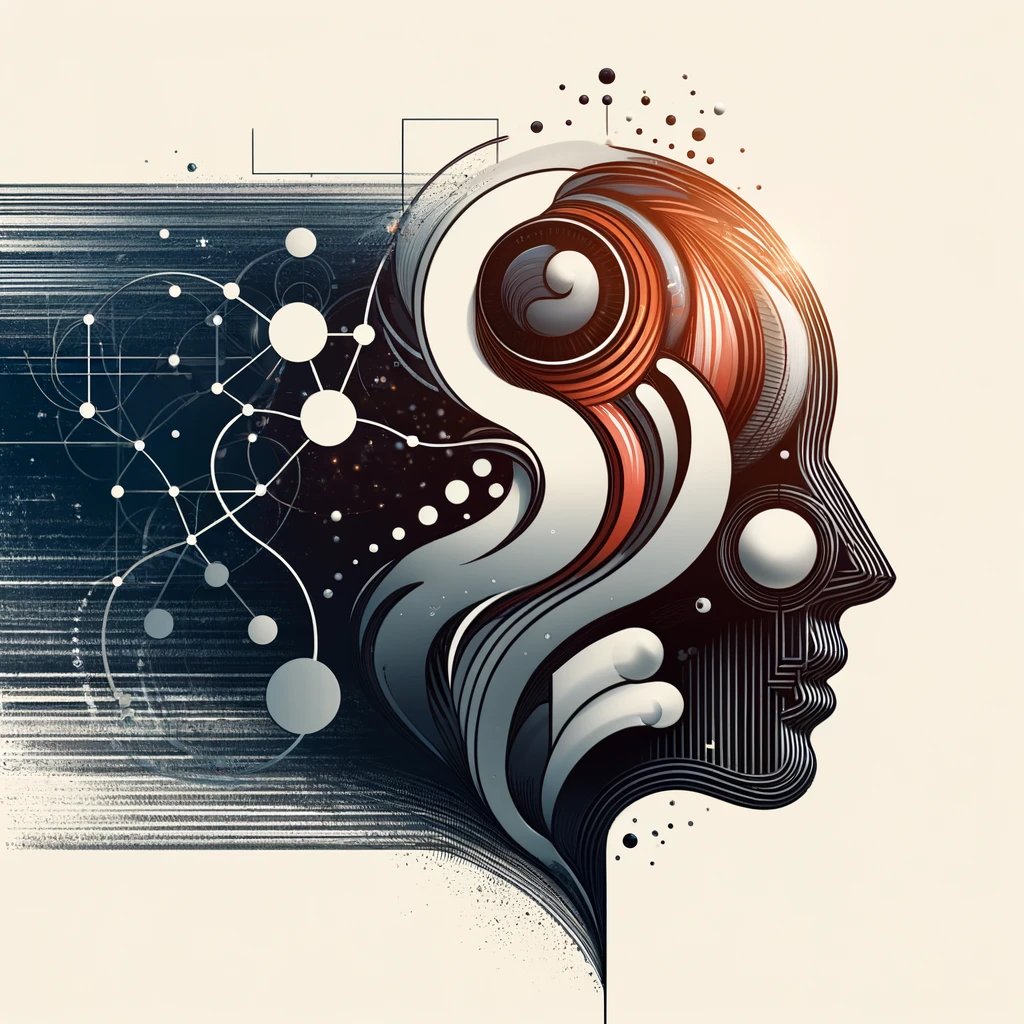



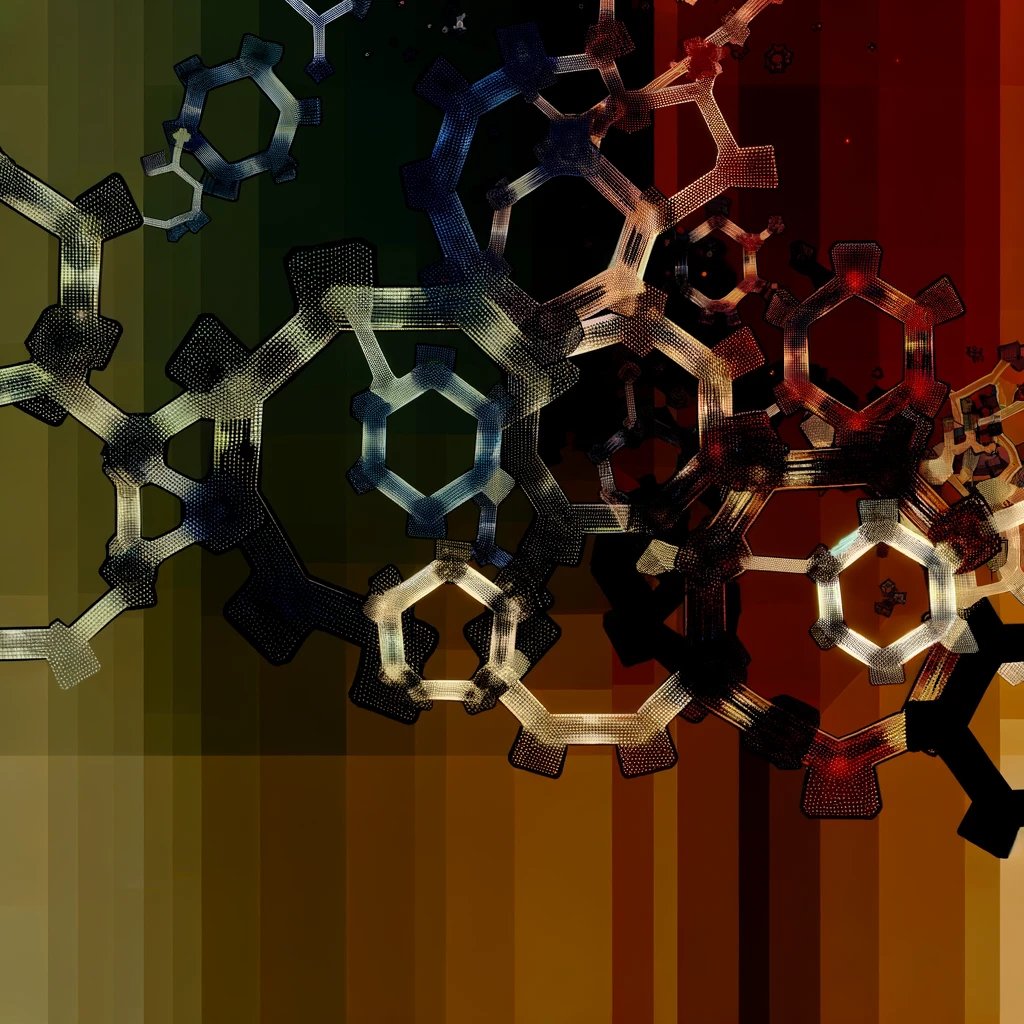

































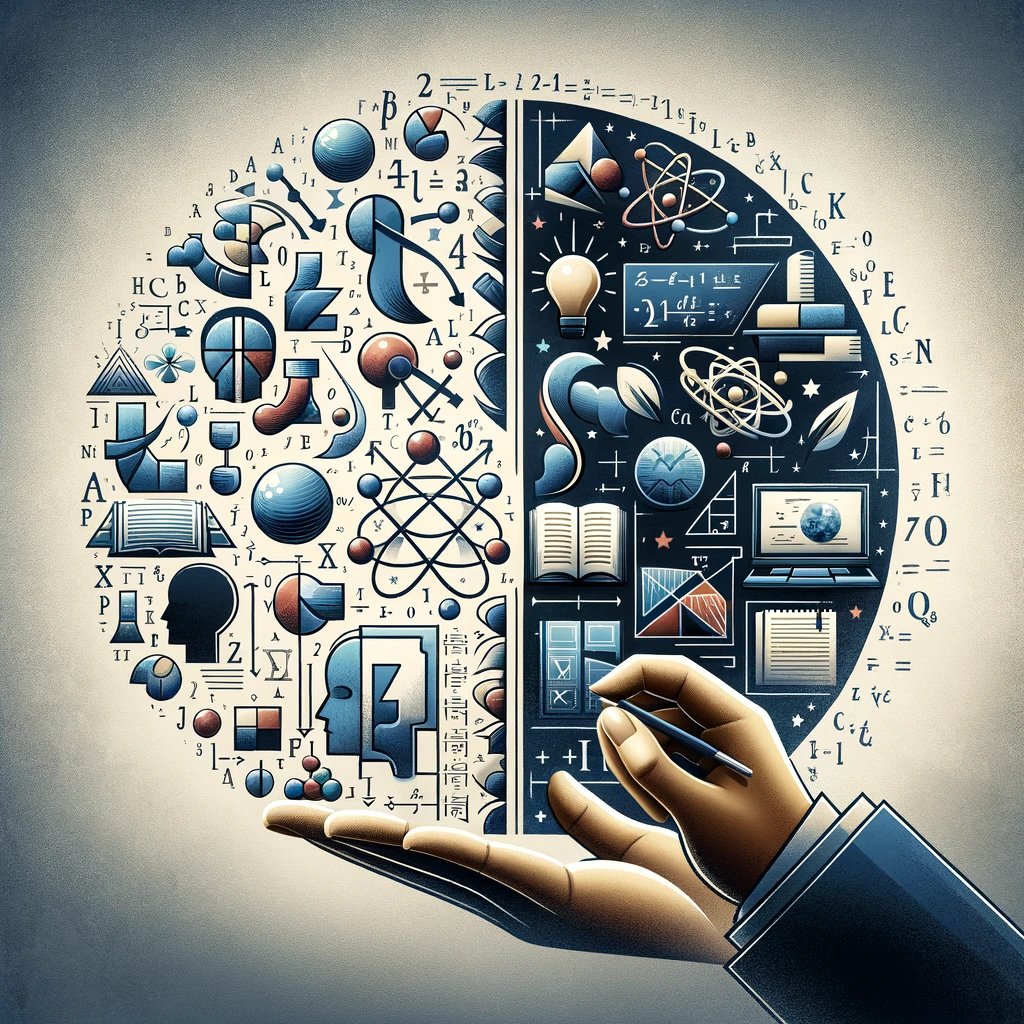

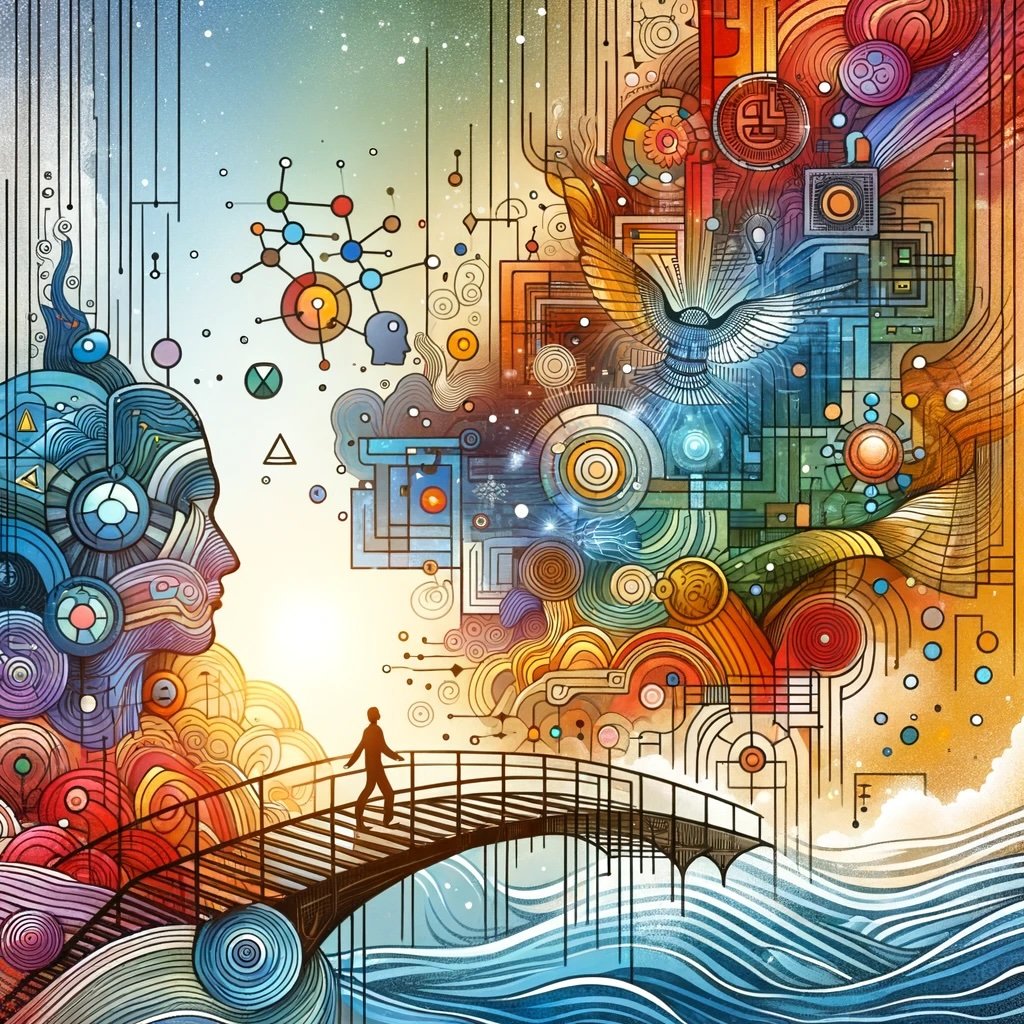

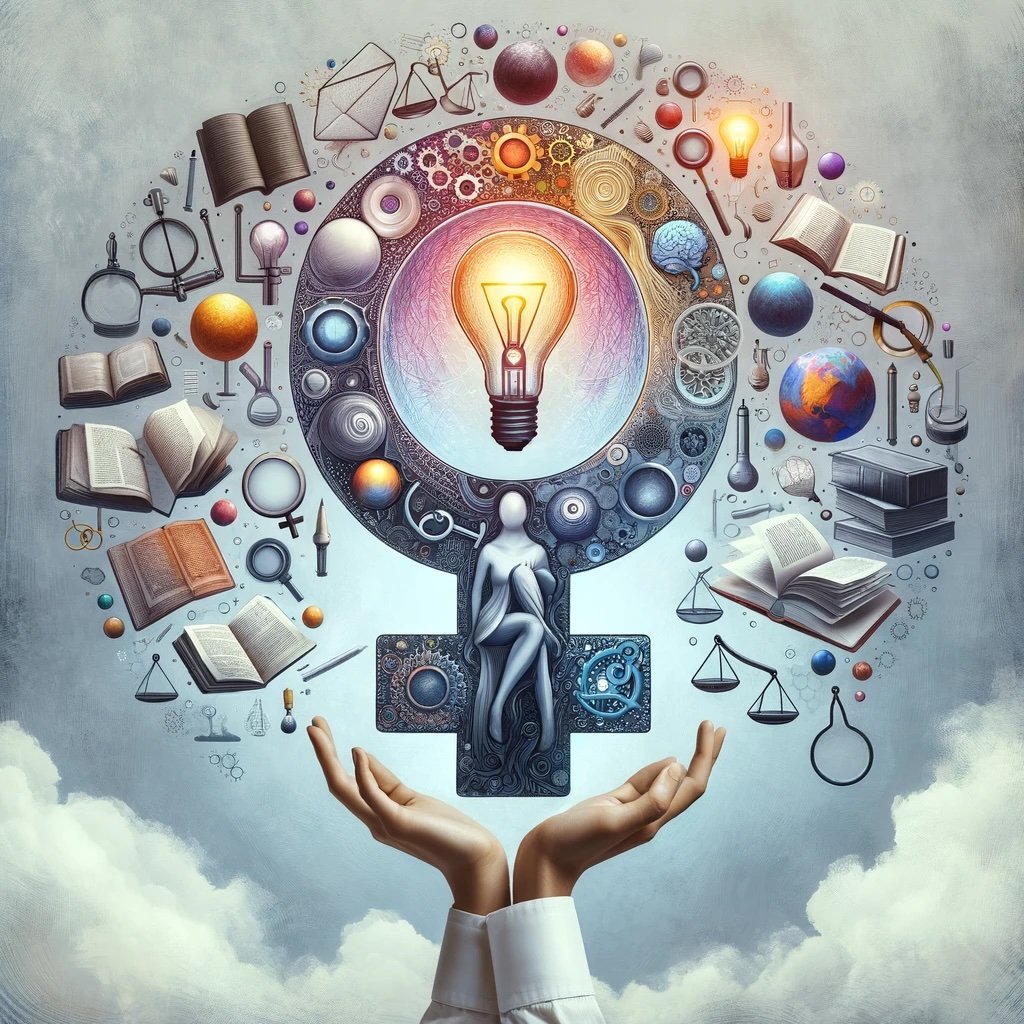












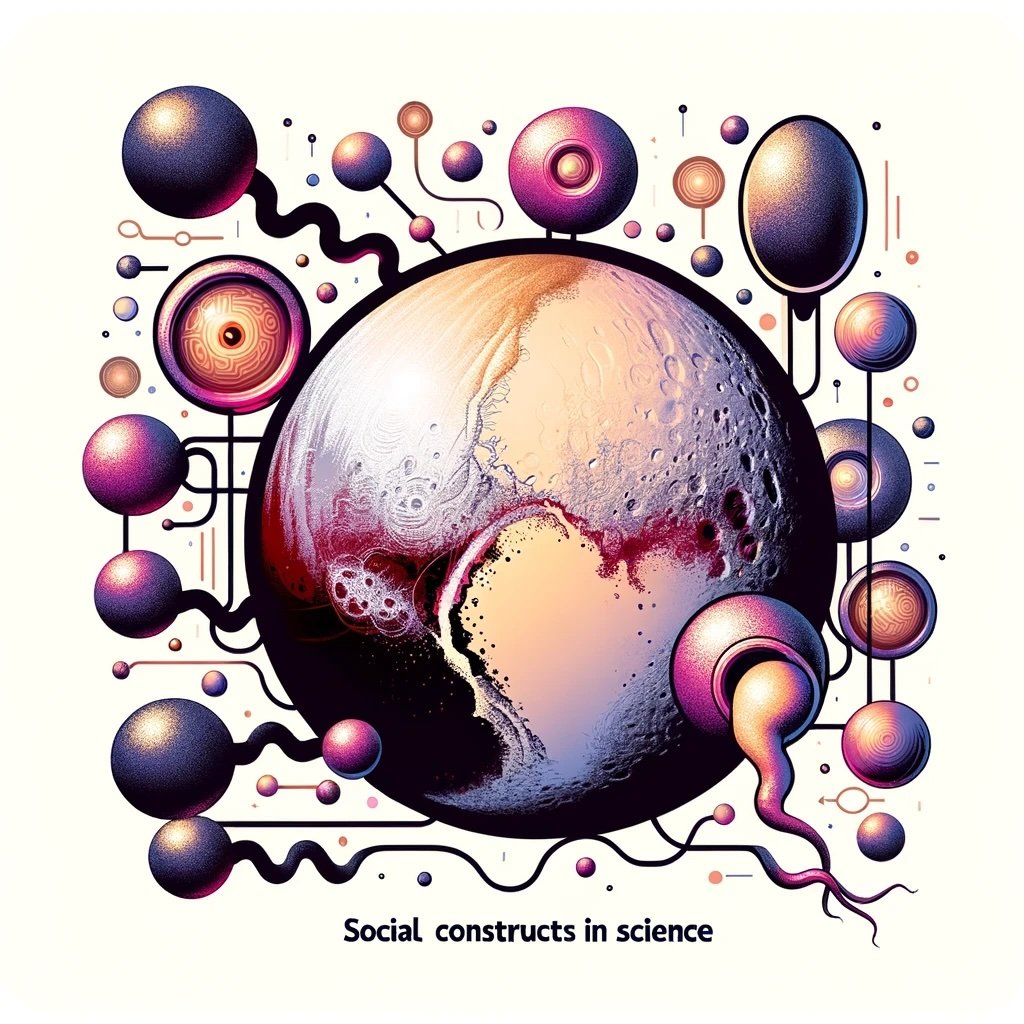





















Examining the ways populism exploits incoherence and bad logic to make truth irrelevant, and the dangers this poses to political discourse.